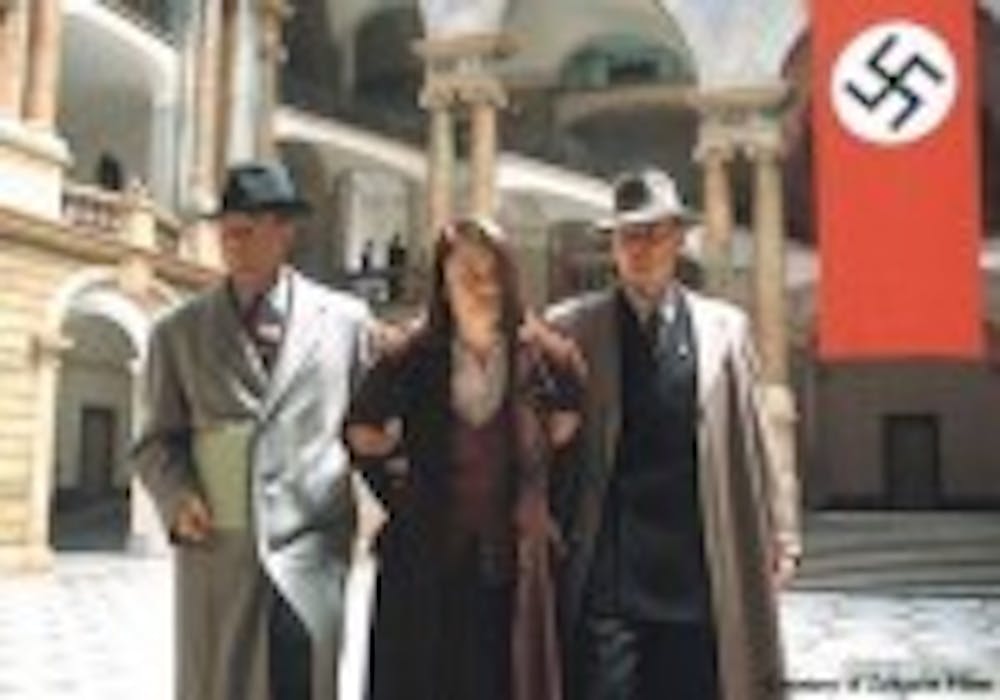"Sophie Scholl: The Final Days" recounts the compelling story of several young college students in Nazi Germany.
This action-packed German import is guaranteed to enlighten, inform and entertain. It was nominated at this year's Academy Awards for best foreign film and won best actress and director awards at the Berlin International Film Festival.
Sophie Scholl (Julia Jentsch), Hans Scholl (Fabian Hinrichs), and Christoph Probst (Florian Stetter) are portrayed as diligent students who are committed to opposing Hitler's rule via passive resistance. They quickly devise a plan to publish and distribute informational pamphlets discrediting Hitler's regime.
The tension mounts on a morning in February 1943 when Hans and Sophie fill their leather-bound briefcases with thick stacks of printed paper. The two nervously glance outside the window of their apartment as they wait in anticipation to carry out the risky mission.
Aware of the danger, the brother and sister share a quick embrace. Hans glances down at Sophie and proudly declares, "Today the campus will ignite."
After scattering papers around several floors of the University of Munich, Hans and Sophie attempt to make a quick getaway when a janitor stops them and immediately notifies the Gestapo.
They were close to making it out of the university unscathed, yet in a brief moment of hesitation Sophie had decided to send a stack of papers flying off the second-floor balcony. This was perhaps the pivotal moment in the film, which determines the grim fate awaiting Sophie, Hans, and Christoph. It was achieved brilliantly.
Director Marc Rothemund did an excellent job in managing to convey the severity of this particular situation and the resulting suspense. With riveting camera angles and a concise script, it is easy to become deeply involved.
Jentsch's depiction of Scholl is masterfully executed. The audience is placed inside the room with her, and the anticipation that builds throughout the interrogation scenes is excruciatingly unbearable.
Pauses in the dialogue when waiting for Sophie's responses create cinematic drama, and add to the credibility of such a situation. Not once does Sophie flinch or show a sign of weakness.
It appears as though the authorities buy into her story until Sophie's brother Hans breaks down and confesses their involvement. The remarkable spirit of Scholl is demonstrated in her audacity to announce that she is proud of what she did, and in her ability to valiantly face the consequences of her actions.
Scholl stands strong in the face of injustice and authoritarianism the same way Sir Thomas More did in "A Man for All Seasons" or Edward R. Murrow in the recent "Good Night, and Good Luck." Such films, like their protagonists, naturally inspire.
"Sophie Scholl" is a superb German film that isn't afraid to confront its home country's dark history just as "Downfall" did last year.





